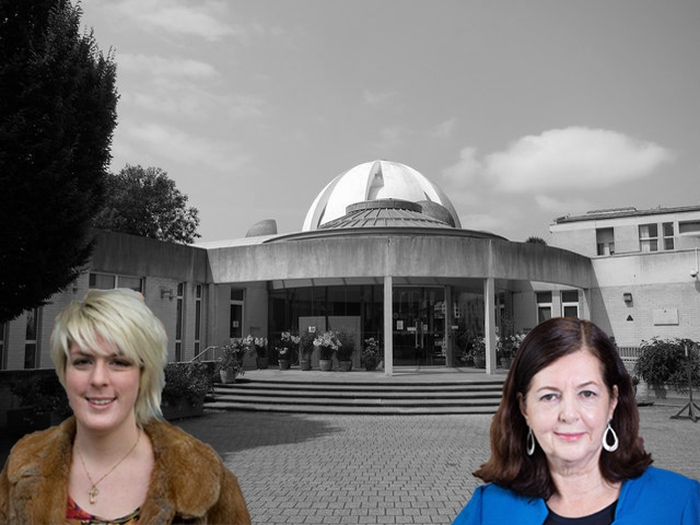Murray Edwards fertility teaching continues to divide opinion
Cambridge alumnae and students alike have offered their support for fertility education despite widespread criticisms

Alumnae and students alike have this week come out in support of Murray Edwards’ President’s controversial plans to open up conversations around fertility.
Dorothy Byrne, who’s been at the helm of Murray Edwards since September 2021, told the college’s JCR this month that she wants to encourage talking “openly about fertility, in the same way it is important to be aware of the facts about contraception.”
Byrne received criticism that she was perpetuating a “narrow view of both womanhood and the intellect of her students” and would risk alienating non-binary and minority gender students.
However, some University alumnae, including journalist and broadcaster Elizabeth Day, have defended Byrne amongst an onslaught of criticism. Writing in her column in You Magazine, Day described Byrne as her “hero.”
Day described her “two unsuccessful rounds of IVF, three miscarriages, one round of egg freezing, various surgical procedures and internal investigations, countless scans and blood tests with multiple fertility clinics” as contributing to her support for opening up the conversation around fertility.
“When I was a teenager, the majority of our sex education was focused on ensuring we didn’t accidentally get pregnant or contract a sexually transmitted disease. I entered my 20s with the firm belief that if I wasn’t careful, I would end up dashing my hopes of a successful career by unwittingly becoming impregnated with sextuplets any time I slept with a man.”
“I had absolutely no awareness that my fertility was not guaranteed.”
Day goes on to write that if she’d been taught about the “limits of [her] fertility”, she would’ve made “more informed choices and been empowered to do so.”
Other students across the University also support raising awareness around fertility; one anonymous St Catharine’s student told Varsity that the backlash surrounding the reaction to Byrne’s comments was “built on a culture of outrage” in which people are “quick to presume that something is offensive based on a clickbait article, without reflecting on the nuances″ of someone’s ideas.
They continued: “It is quick and easy to conclude that Byrne’s comments were regressive or unfeminist, or that they ignore the fact that women are constantly bombarded with pressures to have children and reminders that fertility ‘falls off a cliff after 35.’ But I don’t believe that that is the true sentiment of Byrne’s comments.”
“The process of having children can be difficult, traumatic, heartbreaking, and in some cases dead-end”, the student added, “and fertility is a complex science. Just because having children isn’t aligned with modern day feminism’s idea of what women’s priorities should be, it doesn’t mean that it is not a significant and real issue impacting women’s lives.”
The student went on to reference an article published in the Guardian this year, in which Shanna Swan, a professor in environmental medicine, states that most couples will have to use assisted reproduction by 2045 due to chemicals in plastics that people ingest from food packaging. “Chemicals like Phthalates and Bisphenol A (BPA) can lead to reduced hormone levels, lower sperm count, increased risk of miscarriage and premature birth. In the next few decades, issues relating to fertility will affect the lives of almost everyone in some way, even if you choose not to have children yourself.”
“We cannot ignore the potential trauma and difficulties that a large percentage of the population will face simply because it appears on the surface to be unfeminist,” the student added. “Fertility is a women’s issue, and therefore it is a feminist issue. Education is key.”
Other students who spoke to Varsity were similarly defensive of Byrne, though they were sympathetic to both sides of the debate. One Murray Edwards student told Varsity that they thought “Dorothy’s decision to mention fertility was directed by her own personal experience and was well-meaning. Many students at Cambridge will one day have to make decisions where they weigh their career and family aspirations against one another.”
But the student went on to say that “leading one of Cambridge’s only remaining ‘all-women’ colleges, Ms Byrne should have considered the way in which her comments would be received, and the implications they might have for her vision for Medwards.”
“Of course, not every woman wants to be a mother and nor are we wholly defined by our ability to have children or not,” Day concludes in her column, “but for us not to feel misplaced shame or stigma, it’s important we talk about the things that permanently shape women’s – and men’s – lives without fear of judgment.”
 News / Caius mourns its tree-mendous loss23 December 2025
News / Caius mourns its tree-mendous loss23 December 2025 News / Cambridge welcomes UK rejoining the Erasmus scheme20 December 2025
News / Cambridge welcomes UK rejoining the Erasmus scheme20 December 2025 News / CUP announces funding scheme for under-represented academics19 December 2025
News / CUP announces funding scheme for under-represented academics19 December 2025 News / King appoints Peterhouse chaplain to Westminster Abbey22 December 2025
News / King appoints Peterhouse chaplain to Westminster Abbey22 December 2025 Interviews / Politics, your own way: Tilly Middlehurst on speaking out21 December 2025
Interviews / Politics, your own way: Tilly Middlehurst on speaking out21 December 2025









